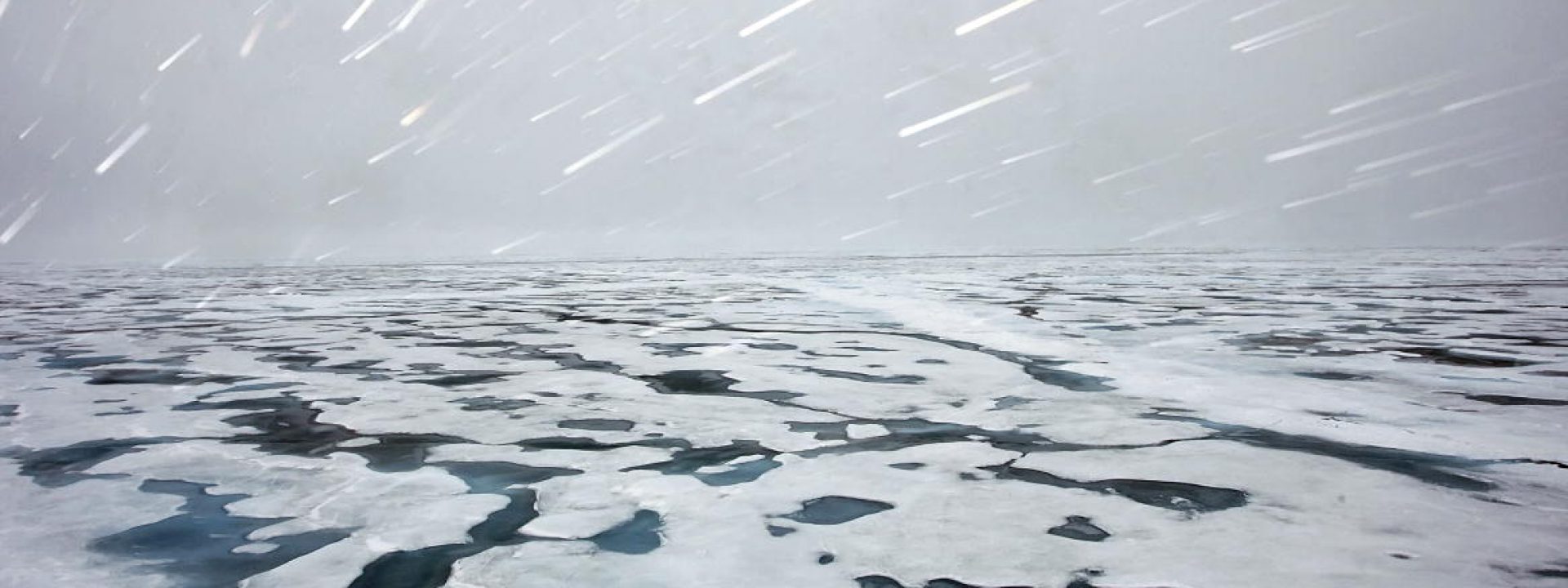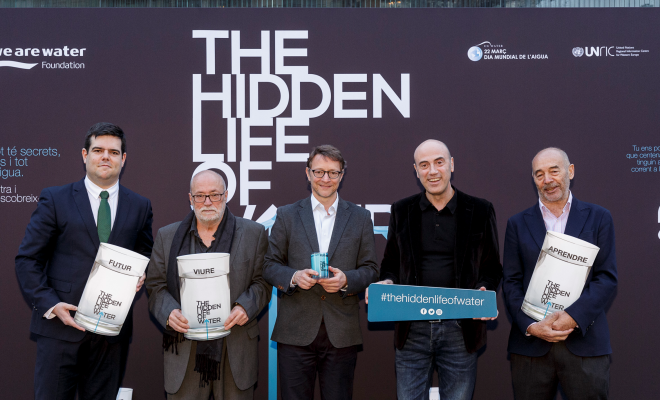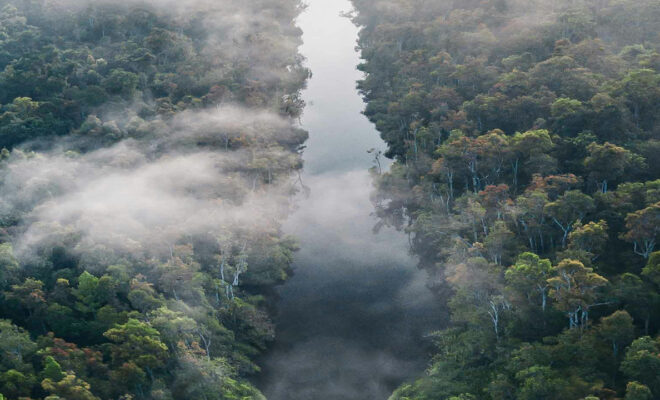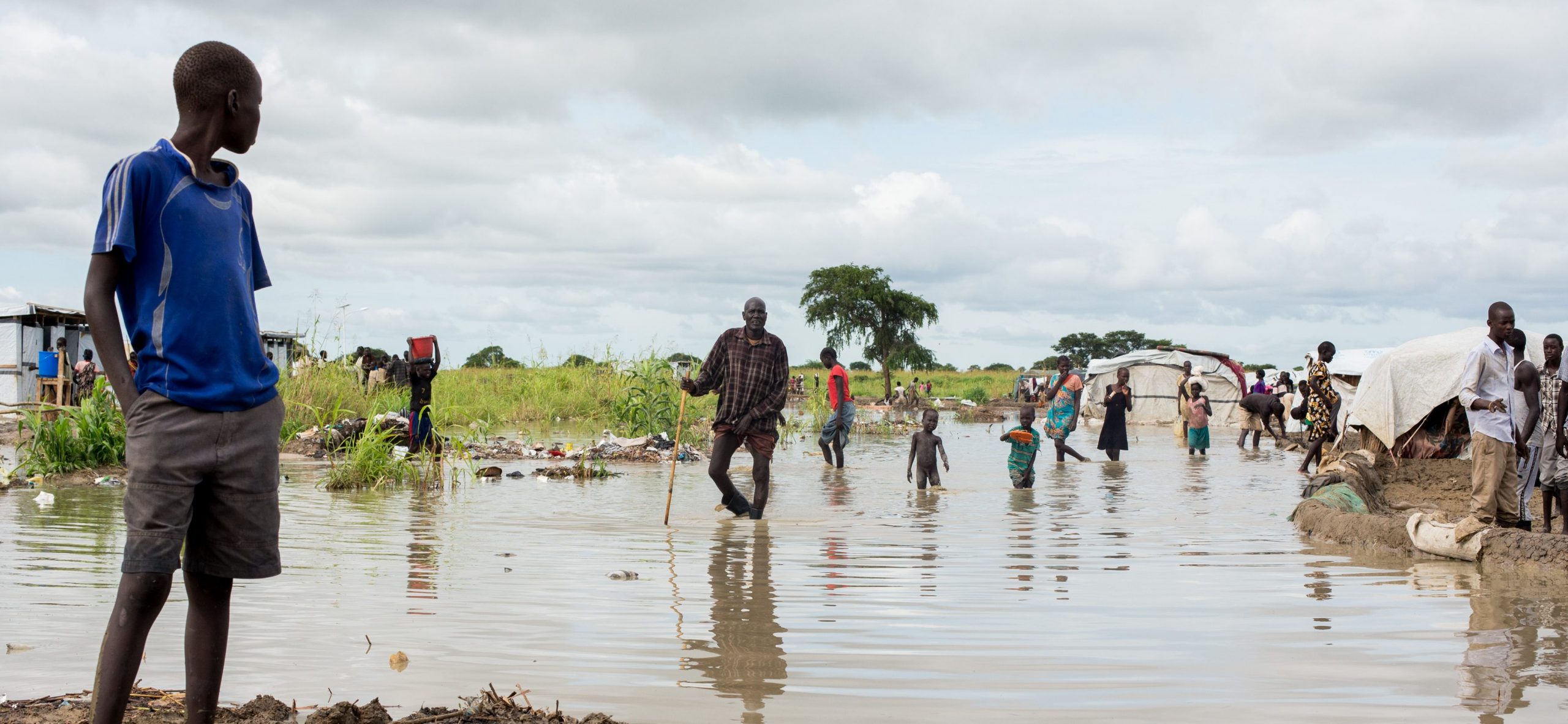
Floods near Bentiu, in Unity State, Southern Sudan, home to more than 40,000 displaced people. ©UN Photo/JC McIlwaine
“The first thing rain takes away is the memory of the drought.” With this metaphor, the Brazilian architect and urban planner Marussia Whately explained the tendency to forget that often occurs among those affected by a water crisis. In a conference organized by the We Are Water Foundation and Casa Amèrica Catalunya, the expert in water and urban planning made reference to the serious supply crisis experienced about three years ago in the area of São Paulo.
Whately explained the lack of water that caused 15 million people to suffer supply restrictions of up to 12 hours a day. During November and December 2014, the worst period of the crisis, there was great concern among the population about climate change. Politicians, climatologists and the media explained in detail the relationship between global warming and the decrease in precipitation in southern Brazil and provided a wealth of scientific information, but as the supply returned the subject became less and less frequent, to become residual in the daily news… and in the concern of citizens.

We have the problem today, even if we relativize it
The environmentalist George Marshall, founder of Climate Outreach, defines this attitude as “pushing the problem into the future” on the part of those affected. There is a tendency to think that the current climate problems are exceptional and that the next generations will be the ones to mitigate or adapt to them. Marshall also sees a paradoxical attitude among some of those who suffer the consequences of more extreme events: a tendency to avoid thinking that the phenomenon could be repeated in the future. In a study that the expert carried out in the area of Texas that had suffered the terrible drought from 2010 to 2015, after the return of the rains, a large part of the population and the authorities considered it unlikely that such a drought would occur again. A similar attitude followed the devastation of Hurricane Harvey in large parts of the United States; according to Marshall, in view of the significant lack of climatic explanations in the local media, a mayor of a severely affected town told him: “The citizens have suffered a lot and now we are going to explain to them that this can happen again? Let’s not demoralize them.”
The tendency to shift the problems of climate change towards the future or to relativize them in comparison with others perceived as more immediate or more serious was already detected in 2013 in a study by Pablo Ángel Meira, professor of Theory and History of Education at the University of Santiago de Compostela, which showed that concern about climate change among the Spanish population fell significantly due to the economic crisis: in 2008, 14.8% considered it the most worrying global problem; in 2010, the proportion fell to 6% and to 3.5% in 2012.
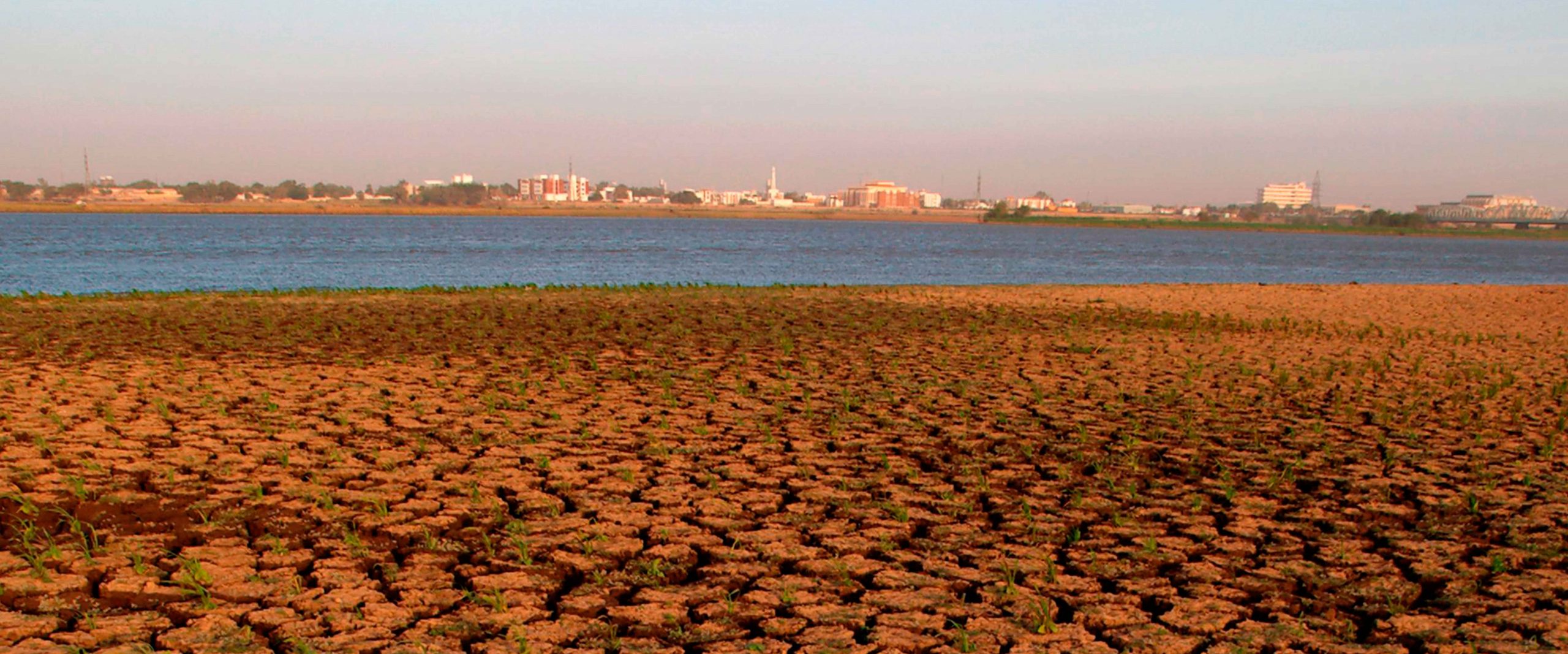
Desertification at the White River. Khartoum, Sudan. © Arne Hoel / World Bank
Science must become action
In the study Psychological resistance in the perception of climate change, Cristina Huertas, PhD in Chemical and Environmental Engineering from the University of Seville, and José Antonio Corraliza, Professor of Social and Environmental Psychology at the University of Córdoba, describe and explain with rigour and clarity the reasons why awareness of climate change has not advanced at the pace that the scientific community and the institutions of the United Nations environment that have promoted the COPs, the Conferences of the Parties, on climate change would like to see.
In the document, which is a must-read for anyone concerned about environmental awareness issues, Spanish experts point to the concept of “information deficit” with regard to climate change. They consider that it is relatively small and very unequal in relation to other events of a “crisis” nature, and cite a study by the Universitat Oberta de Catalunya (Open University of Catalonia, UOC) in 2013 which shows that the issue of climate change accounted for 0.19% of the content of the media in the world, a very small proportion in the opinion of communicators to what could be expected given the seriousness of the threat.
The holding of COP21 in December 2015 in Paris marked a turning point in the communication of the crisis. Following the scientists’ dramatic appeal, global warming gained renewed prominence, especially when the extreme events of the following years were massively reported in the media as a consequence of it. The severity of droughts in India, the Sahel, Peru, Bolivia and Spain, and the unusual hurricane season in the Atlantic and Caribbean in 2017, for example, were already clearly defined as effects of climate change by the media.
These data show that information on climate change follows a pattern that relies heavily on dramatic news, which does not help the population’s efficient awareness. According to psychologists, the catastrophism that often results from this type of information encourages “forgetfulness” as a psychological reflection of self-protection. Scientific objectivity helps us to situate ourselves outside the tremendous and access things as they are based on the data we have on them, but what helps us most to assimilate information rationally is the proposal of concrete actions, both for mitigation and for adaptation.
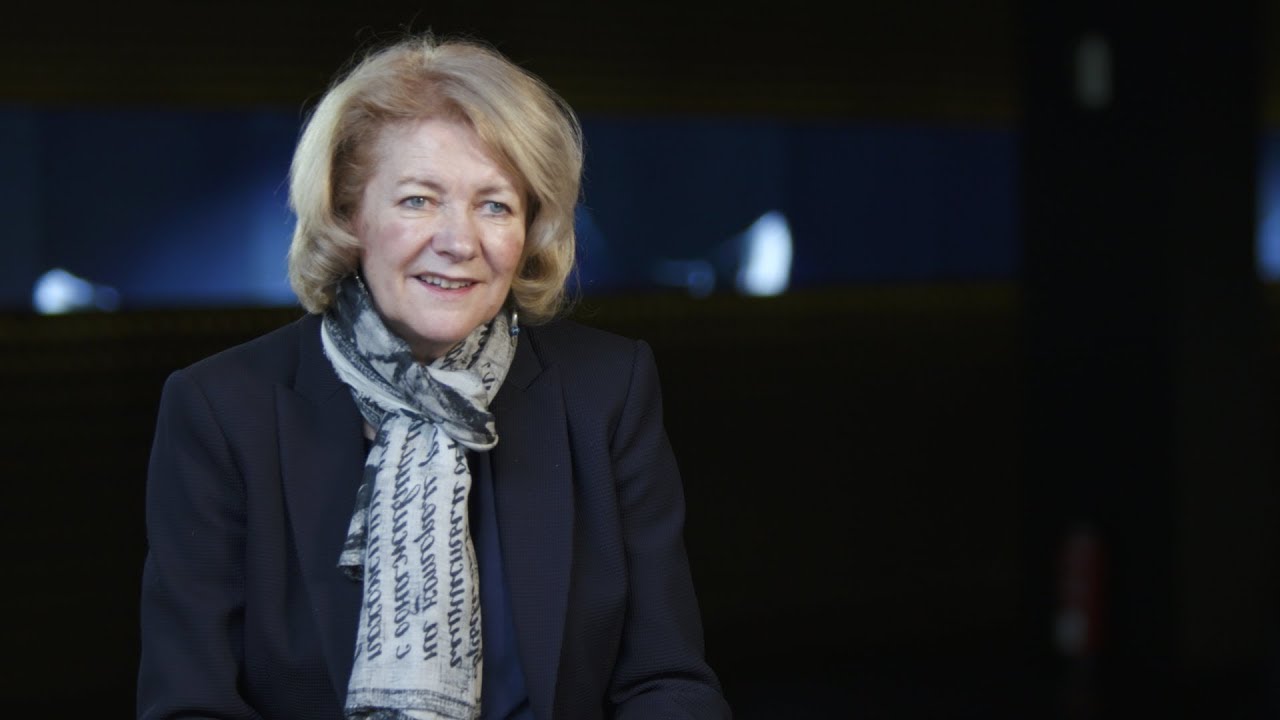
Alison Smale, UN Under-Secretary-General for Global Communications, on a recent visit to the We Are Water Foundation, said: “Weather changes are what make people realize that something is happening on our planet. There is a lot of ignorance, a lot of populism around these facts and what we need is solid scientific research and data to convey an understandable message to people but, above all, combined with real action.”
Psychological resistance and denialism
Marshall argues that resistance to acceptance is also due to a psychological narrative factor corroborated by neuroscience: “Our brains are programmed to respond to concrete, visible and urgent threats. We are able to glimpse the future, but we do not react until we have the danger in front of us. And so an abstract, invisible and to a certain extent ‘remote’ threat, such as climate change, does not provoke collective action. Science has already made a clear statement on climate change, but people are driven primarily by social signals.” That is, we are able to alter the perception of facts according to our emotional state, values and beliefs even though they are objectively presented by science. The reality is that climate change is an unprecedented crisis in human history and it is evident that we have generated it; it is an uncomfortable truth to accept because it questions our way of life.
On the other hand, in attitudes of radical denialism, scientific information is of little use, and sometimes even generates rejection. This is the case of part of Donald Trump‘s environment, which considers that the information on climate change is false or exaggerated and is the result of a campaign by the enemies of the US economy to make it less competitive by reducing CO2 emissions. In these cases, communication experts insist that the data must also be accompanied by proposals for concrete mitigation and adaptation actions that make the denialists see that most of them have already taken action, and that the US cannot remain on the sidelines of the scientific, technological and, consequently, economic leadership that the fight against climate change will generate.
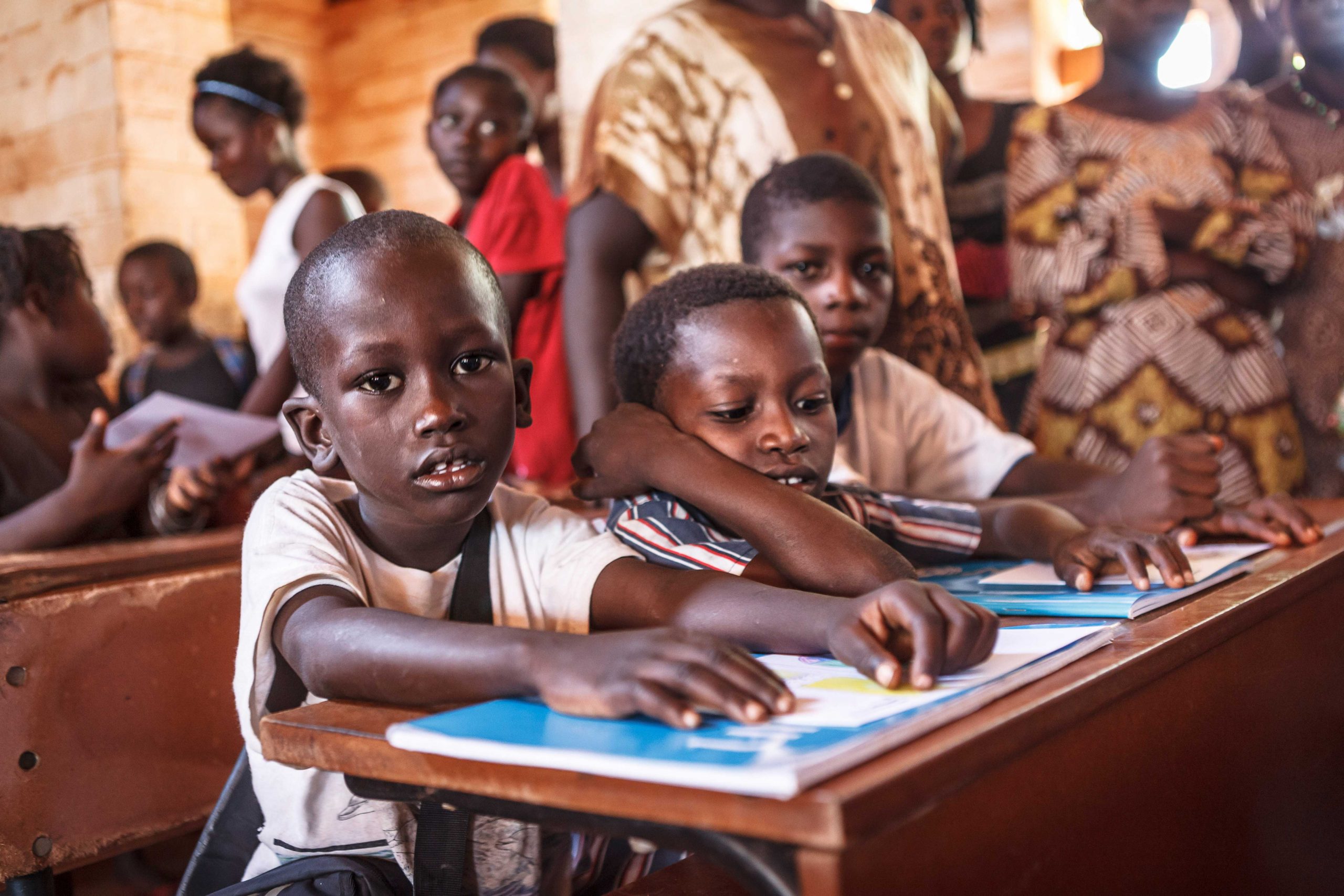
Schoolchildren will be the most effective agents of the new environmental culture. ©Carlos Garriga /Fundación We Are Water.
Young people are the future, but so are we
A majority of committed citizens is needed to pressure political power and bring about effective change. Educating young people in the scientific method is the basis of a solid awareness and a generation of critical mass indispensable to our society. Especially in the poorest and most vulnerable countries, the chances of a more prosperous future depend on young people. Achieving a level of adaptation to water crises, sea level rise and violent weather events will not be possible without the knowledge and awareness of those who are now schoolchildren, who must now act as active agents in creating a new environmental culture.
Alison Smale also explained: “Climate change is one of the problems where young people can be more actively involved in local, national or international needs. Our generation is leaving them a planet that needs help, and I believe that this is one of the things that can lead to their commitment.”
However, we have the problem here and now, and we should not think that the solutions will be left to future generations. As Marshall says, we must find coherence between what we know, what we care about and what we do. In this way, with a strong individual conscience we can influence those around us and create a new culture of efficient and supportive action.


